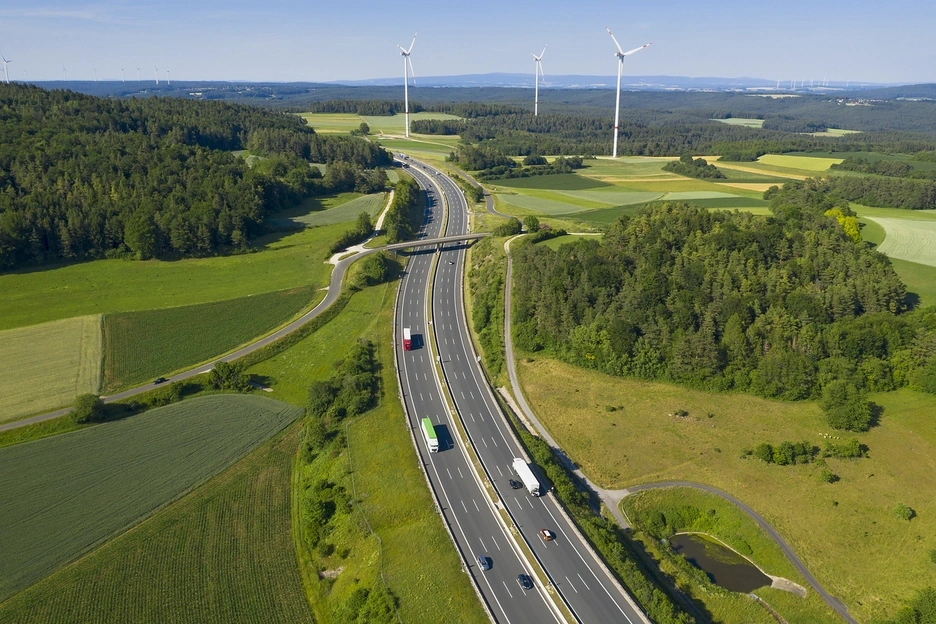For Earth Day, Nature-Based Solutions in Private Sector Infrastructure Projects

Given the vulnerability of infrastructure to climate change impacts, Nature-Based Solutions (NBS) have gained relevance due to their cost-effective, practical, and flexible approach toward mitigation and adaptation to climate change. According to the International Union for Conservation of Nature, NBS are understood as actions to protect, sustainably manage, and restore natural or modified ecosystems that address societal challenges effectively and adaptively, simultaneously providing human well-being and biodiversity benefits.
NBS are uniquely positioned to encourage the development and implementation of infrastructure projects under a sustainable framework that recognizes the benefits that natural assets can deliver to communities and infrastructure projects. They involve the use of natural systems, such as forests, wetlands, and green spaces, to provide a range of benefits, including flood control, air, and water purification, heat stress reduction, pollination and crop production, habitat conservation, and biodiversity offsets, as well as climate change mitigation.
Several studies have shown that NBS provide meaningful societal benefits for climate and social resilience, as well as ecosystem health. According to a recent publication from the Inter-American Development Bank and the World Resources Institute, NBS can offer the following advantages:
- Reduce the impacts of the current and future climate-related hazards on infrastructure projects. NBS can extend their life span by combining ecosystem preservation and restoration to create more resilient facilities. For example, wetlands and mangroves act as natural sponges, soaking up excess water and releasing it slowly over time, protecting infrastructure facilities, and businesses against flooding.
- Increase the potential of natural assets to mitigate and prevent the degradation of ecosystems, For example, the restoration of wetland and forest ecosystems increases the amount of CO2 sequestration.
- Help build social resilience by providing opportunities for people to connect with nature. Green areas can serve as social hubs, fostering a sense of community and promoting mental and physical well-being.
Additionally, for the private sector, some of the opportunities of considering NBS in infrastructure projects include:
- Cost saving potential. They can be more cost-effective than traditional infrastructure solutions, especially in the long term.
- Enhance sustainability credentials. NBS can be more environmentally sustainable than traditional infrastructure solutions, as they rely on natural processes.
- Improved resilience. They can be more resilient to extreme weather events and other disruptions, as they are more flexible and adaptable to changing environmental conditions than hard infrastructure such as concrete channels that have limited capacity for natural adaptation.
However, the private sector might face specific challenges when implementing NBS in infrastructure projects:
- Initial costs. While NBS can be more cost-effective in the long term, they may have higher upfront costs compared to traditional infrastructure solutions.
- Limited applicability. They may not be suitable for all infrastructure projects or in all locations.
- Insufficient profitability data. Considering that the benefits of NBS are measurable in the long term, there is limited data on the economic profitability of their application.
For IDB Invest, promoting sustainable development and increasing resilience in infrastructure projects is a priority. We are proud to be providing advisory services for various projects throughout the region that include the use of NBS to enhance resilience and ensure long-term sustainability.
We are currently exploring the integration of NBS into transport and social infrastructure design and construction processes. This includes sustainable urban drainage systems for flood protection, as well as green roofs to mitigate the impact of heatwaves. We are also working with the building sector to incorporate resilience and adaptation measures into sustainable building certification, including NBS. Additionally, we are supporting coastal-related businesses and the tourism sector in developing action plans to preserve and restore mangroves and corals, which are critical for flood and coastal erosion protection and ecosystems health. Lastly, we are also supporting infrastructure projects on the implementation of biodiversity offset plans.
Moving forward, IDB Invest will continue to support investments in infrastructure projects that promote sustainability, resilience, and the use of NBS. This includes investing in innovative solutions that incorporate green infrastructure. Additionally, we will work closely with its clients to provide technical assistance and capacity building to ensure the successful implementation and maintenance of NBS in infrastructure projects throughout Latin America and the Caribbean.
LIKE WHAT YOU JUST READ?
Subscribe to our mailing list to stay informed on the latest IDB Invest news, blog posts, upcoming events, and to learn more about specific areas of interest.
Subscribe



